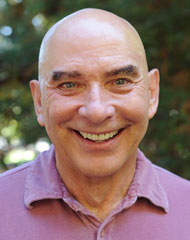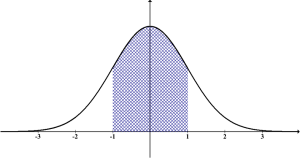
Photo global.usb.edu
Mindfunda Talked with Bill Domhoff about the Cognitive Dream Theory. In the Mindfunda Online Course Dreaming about the Brain, this is one of the three models discussed. The other two are the psychodynamic model of Mark Solms and the Activation-Input-Modulation of Allan Hobson. The latter being the most widely accepted theory of dreaming by scientists.
Bill Dohoff is professor at the University of California. He is also author of several books. His books about dreams, both have become dream-classics in their own right. The first book is The Scientific Study of Dreams. Neural Networks, Cognitive Development and Content Analysis.

The second book about dreams is Finding Meaning in Dreams.

 cognitive dream theory
cognitive dream theory
When I studied psychology, back in the eighties, the brain was called “the black box”. There was a fierce debate about the scientific value of psychology. We, psychologists, were of course convinced that psychology was a scientific study. But we were limited to the behavior-response reserach mode that B. Skinner had provided. Reserach was limited to observable behavior.
This era is a phenomenal one to be alive in. New neurological findings have broken open the black box. We have found out so much more about the psyche by studying the brain. And the beauty of all those scientific facts is that it raises different questions about the human psyche and consciousness. The more we find out, the more we realize that we don’t know that much.
Bill Domhoff became interested in dreams when he came across Calvin Hall. The man we all know from the content analysis system he developed together with Bob van de Castle.
The Cognitive Dream Theory is the only model of the three discussed in the course that connects waking life with the dream state. I think that is right. Whenever I give a presentation about dreams, one of the things I always ask is: “are we dreaming now?” And no one ever answered “Yes think I am dreaming right now”. Just like in dreams where you hardly ever know that you are dreaming, unless you are an experienced lucid dreamer.
The Cognitive Dream Theory is a theory that assumes that children “mature” into dreaming. Foulkes, a reseracher who did quite some work gathering dreams of children, found out that children begin to dream more when they get a bit older. This suggests that the ability to (remember) dreams and to put them into words increses and decreases with age. Older people also report less dreams. Dreams follow a normal distribution. In the fall, there will be a new book about childrens’ dreams, written and edited by Jean Campbell and Clare Johnson.

I hope you will enjoy the interview and the enthousiasm of Bill Domhoff. A man who, with every book he reads and every article that he sees, asks himself the question: can I use it to know more about the process of dreaming?
Here are the four questions I asked Bill Domhoff:
- Could you tell us the story about how you became professional engaged in dreaming and dream research?
- The neurocognitive model is in my eyes so charming because it brings dreaming into the daytime. Could you tell us how daydreaming is related to dreaming?
- What is recent research that you are really excited about?
- What is the best advice you can give to the people watching, who are very interested in dreaming?I hope you will enjoy his answers.
@susannevandoorn
Youtube
Facebook
Online Courses
Free ebook

Looks most interesting Susanne thank you – will watch the interview when I can – I look forward to this, thank you again 🙂
Thank you Susan, I hope you find it interesting. I really enjoyed the enthousiasm and drive of Bill Domhoff, as interviewer the conversation with him inspired me.